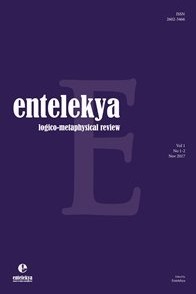On the Common Universal Things and That They Are Not Beings by Themselves
On the Common Universal Things and That They Are Not Beings by Themselves
Aristotle, Alexander, On the Soul, commentary universal, animal,
___
- Alexander of Aphrodisias. “Maqāla al-Iskandar al-Afrūdīsī fī al-Ashyā al-ʻĀmmiyya al-Kulliyya wa Annahā Laysat bi-Aʻyān Qāima.” Ar. trans. Anonymous. Zwei Arabische Fassungen der Abhandlung des Alexander von Aphrodisias Über die Universalia. Ed. Hans-Jochen Ruland. Göttingen: Vandenhoeck & Ruprecht, 1979: 254-9..
- Başlangıç: 2017
- Yayıncı: İlyas ALTUNER
Human Nature in Plato's Philosophy
The Interpretation of Personal Religious Experience in al-Ghazālī's al-Munqidh min aḍ-Ḍalāl
Middle Commentary on Aristotle’s Poetics by Averroes
On the Common Universal Things and That They Are Not Beings by Themselves
Alexander Of APHRODISIAS, Çevirmen: İ̇lyas ALTUNER
